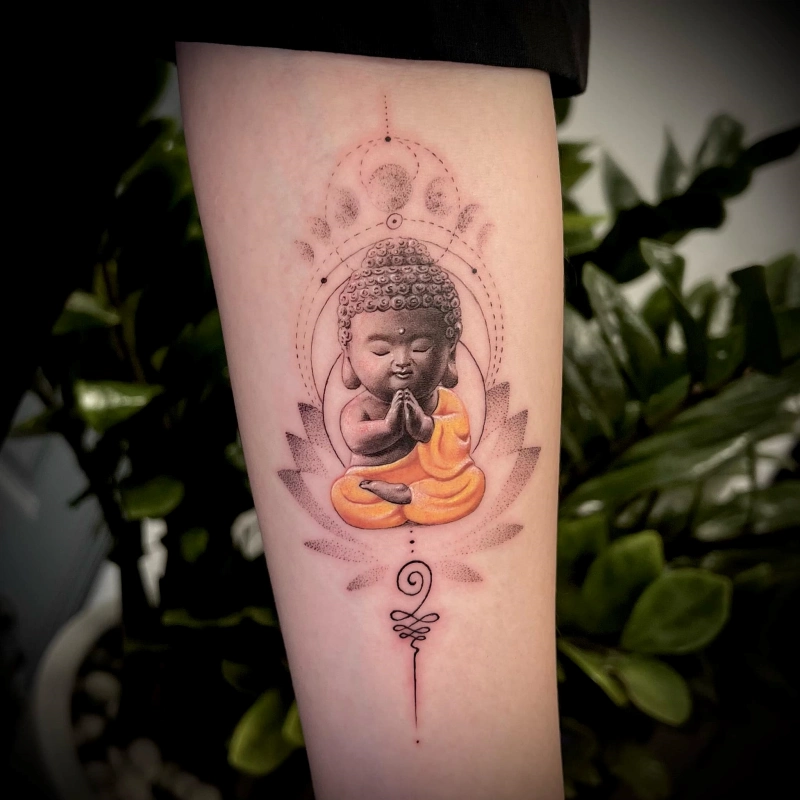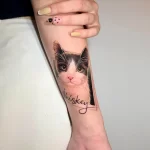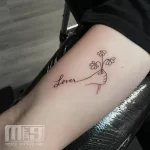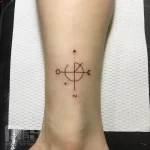
How to choose tattoo ideas for 2024
If you’re thinking about getting a tattoo, but you’re not sure how to choose the right design—don’t worry, you’re not alone. Choosing a tattoo design can be a difficult and overwhelming process, especially when there are so many options out there. But with a little thought and research, you can find a tattoo design that you’ll love. Here are some tips to help you choose the perfect tattoo design.
First, think about the meaning behind the tattoo. Ask yourself:
– What do you want it to represent?
– Do you want it to symbolize something important in your life, like a loved one or a special moment?
– Or do you just want a tattoo that looks cool and unique? Because that’s fine.
Either way, it’s important to have a clear idea of what your tattoo means before you start looking for designs.
Next, consider the tattoo location.

– Where do you want it on your body?
– Each part of the body has different characteristics, so the design you choose must match the area where it will be placed.
– For example, a small and delicate design might look out of place on a big, muscular arm, but look good on a wrist or ankle.
– Think about size. Ask yourself, do you want this tattoo to be big and stand out? Or a smaller and more discreet tattoo? Do you want to see tattoos on your skin every day? Or do you want it in a slightly more hidden place, like on your back? All of these factors will also help you decide on location.
Once you understand the meaning and placement of your tattoo, it’s time to start looking at designs.
– You can find inspiration from a variety of sources, such as tattoo galleries and artist portfolios.
– You can also use online tools like Pinterest and Instagram to search for tattoo designs and see what others have done. Just remember to keep an open mind and pay attention to designs that catch your attention.
– You can also let your tattoo artist help you perfect your idea or come up with an idea based entirely on their style, expertise, and design ideas. Many artists often have books containing hundreds of designs ready to be made.
Finally, think about color.
– Decide whether you want to use black or colored ink. Choosing a color will affect the design, cost and how long you will spend in the chair.
– Color tattoos usually take longer because the artist spends time mixing the shades and adjusting the pigment to suit your design. The results are often worth the wait.
Once you find a design you like, it’s important to do your research and make sure you’re choosing a reputable tattoo artist to do the work. You can do this by looking at the artist’s portfolio and reading reviews from other customers. A good tattoo artist will be able to help you refine the design and make sure it looks the way you want.
Be bold, be very bold
Black tattoos are a popular and striking way to stand out from the crowd.
When tattoo artist Kat Von D took to Instagram to share her latest work with Philadelphia-based tattoo artist Hoode Philly, she braced herself for online backlash.
She asked her audience to “read my caption before commenting”. But as more and more people choose tattoo cover-ups to cover up old tattoos they feel are dated, why is this form of tattoo art causing such a strong reaction?
A black tattoo is a way to cover up an old tattoo with darker ink. Kat Von D chose this method to cover up a tattoo from a period in her life that she no longer wanted to remember.
“It feels so good to finally cover up the many tattoos I had when I was drunk,” she wrote on Instagram. “Those tattoos mean nothing to me other than as landmarks in dark times.”
Setting aside, perhaps it’s the cover’s bold appearance that’s causing all the fuss. For stunning cover-up inspiration, check out our guide here.
No regrets: tattoos in the workplace
If you need a little proof as to why you should confidently get your new tattoo then look no further.
In the study “’No ragrets’: Public perceptions of mental health professionals with tattoos,” psychologists examined how tattoos affect relationships between professionals and clients. row. Would people view a tattooed professional as less competent, or even less likable?
What they found was positive and motivated arguments about tattoos in the workplace. “Tattoos do not appear to influence perceptions of clinician competence among the general public and may even assist in forming professional relationships with clients.”






